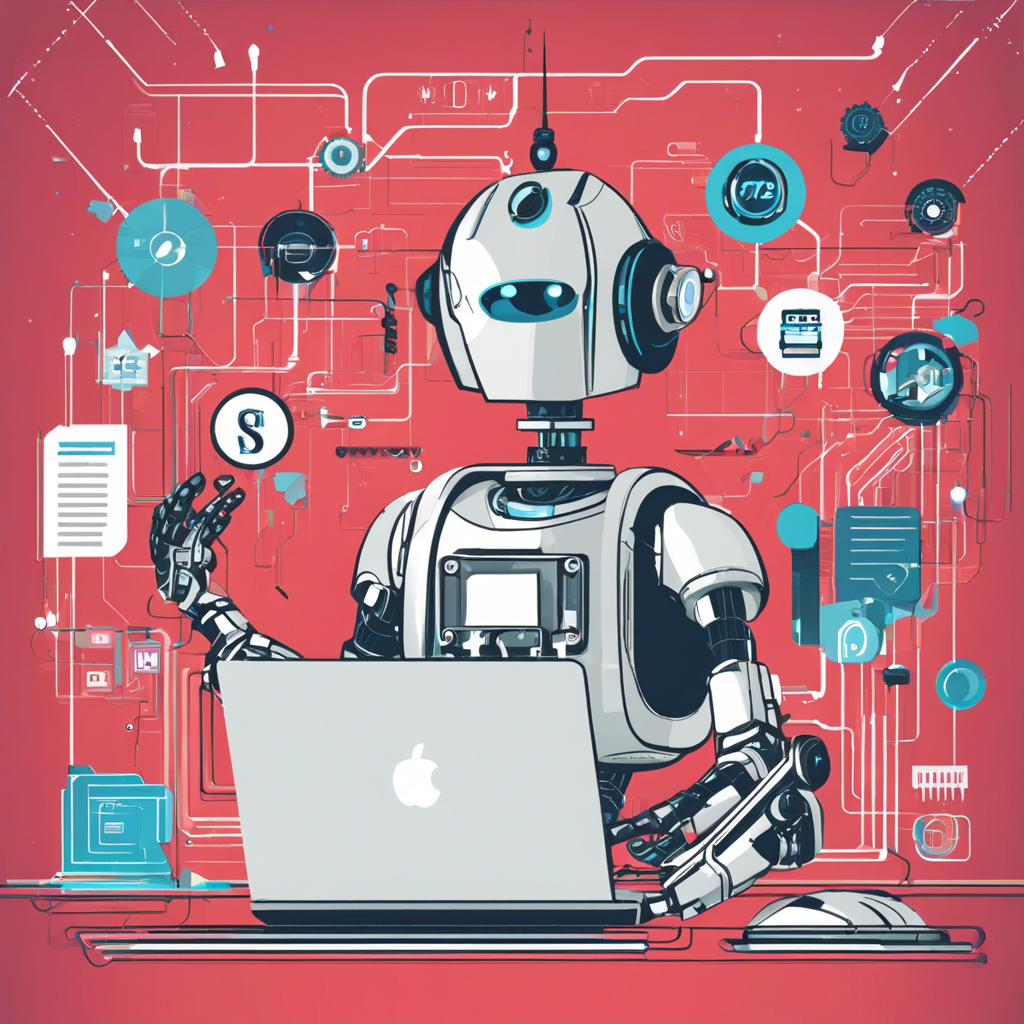Exploring how AI and automation are reshaping SEO strategies, content creation, and user experience.
The field of Search Engine Optimization (SEO) is undergoing a profound transformation with the rise of artificial intelligence (AI) and automation. These technologies are revolutionizing the way content is created, optimized, and delivered to users, fundamentally altering the online landscape. As AI continues to advance, its impact on SEO strategies and digital marketing as a whole is becoming increasingly significant. This article explores the future of SEO in the age of AI, examining the opportunities and challenges presented by these technological advancements.
## The AI Revolution in SEO
AI is not just a buzzword but a powerful force that is shaping the future of SEO. The integration of AI into search engine algorithms and digital marketing strategies is nothing short of a revolution. Here’s how it’s changing the game:
### 1. Intelligent Content Creation
AI has made content creation more sophisticated with its ability to analyze vast amounts of data. Tools like natural language processing (NLP) and machine learning enable **content generation** that adapts to user preferences, search intent, and trends. This means creating content that is not only optimized for search engines but also resonates with the target audience.
### 2. Personalized User Experience
AI-driven SEO goes beyond keywords and backlinks. It focuses on delivering a **personalized user experience**. By leveraging user data and behavior patterns, AI algorithms can predict and serve content tailored to individual preferences. This level of customization enhances user engagement and satisfaction, which are crucial factors in search engine rankings.
## AI-Assisted Content Optimization
The role of AI in SEO extends to every stage of the content lifecycle. Content optimization is a key area where AI shines, offering several benefits:
### 1. Semantic Analysis
AI algorithms excel at
semantic analysis
, understanding the context and meaning behind words and phrases. This capability allows for more accurate interpretation of user queries, leading to better content relevance and improved search results. For instance, Google’s BERT update in 2019 significantly enhanced the search engine’s understanding of search intent.
### 2. Automated Keyword Research
Keyword research is a fundamental aspect of SEO, and AI has made this process more efficient. Tools like Google AdWords Keyword Planner and SEMrush’s Keyword Magic Tool, mentioned in [The Ultimate Guide to Keyword Research](https://www.moz.com/learn/seo/keyword-research), utilize machine learning to suggest relevant keywords, analyze competition, and provide valuable insights for content optimization. These tools streamline the keyword research process, saving time and effort.
### 3. Content Testing and Experimentation
AI-powered platforms such as [HubSpot’s Website Grader](https://www.hubspot.com/website) and [SEMrush’s SEO Toolkit](https://www.semrush.com/seo-toolkit/) enable marketers to test and experiment with different content strategies. These tools provide data-driven insights, helping to identify areas of improvement and optimize content for better search engine performance.
## FAQs About the Future of SEO
Here are some common questions about the future of SEO in the era of AI and automation:
1. How will AI affect the job market for SEO professionals?
AI is not a replacement for human expertise but an enhancer. SEO professionals will still be essential in strategy development, creative content creation, and understanding user behavior. AI tools will assist in data analysis, automation, and optimization, allowing professionals to focus on strategic tasks.
2. Can AI-generated content affect website credibility?
When used responsibly, AI-generated content can enhance website credibility. However, it should be supplemented with human expertise to ensure accuracy and authenticity. AI tools can assist in creating high-quality, relevant content but should not replace the need for human review and editing.
3. What about the ethical implications of AI in SEO?
Ethical considerations are vital in the AI-powered SEO landscape. It’s essential to maintain transparency, protect user privacy, and ensure the responsible use of AI. SEO professionals should stay updated on industry guidelines and regulations related to AI and data usage.
## Conclusion
The future of SEO is undeniably intertwined with AI and automation. As AI technology advances, SEO strategies will evolve to leverage its capabilities. This includes intelligent content creation, personalized user experiences, and data-driven optimizations. While automation streamlines many SEO processes, the human touch remains crucial for creative content and strategic decision-making.
As the digital landscape adapts to AI, SEO professionals must embrace these changes, continually learn new skills, and stay updated on industry developments. The synergy between human expertise and AI capabilities will define the success of SEO strategies in the years to come.
—
**Recommended External Links:**
1. [The Future of SEO and Digital Marketing](https://www.single-grain.com/blog/the-future-of-seo) – Single Grain
2. [AI for SEO: How Artificial Intelligence Will Change the Way You Do SEO](https://www.moz.com/blog/ai-for-seo) – Moz
3. [The Role of AI in Content Marketing](https://www.huffpost.com/entry/the-role-of-ai-in-content_b_12333660) – HuffPost
